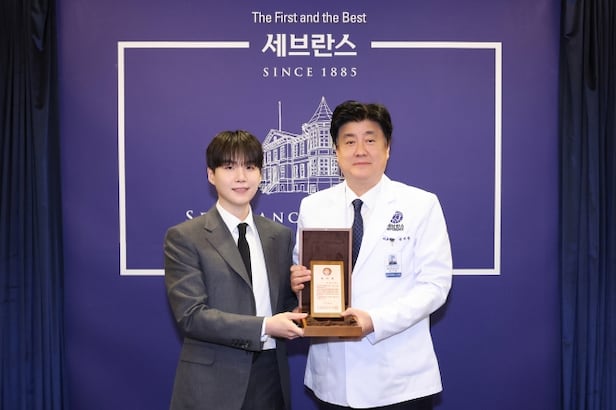BTS's Suga Partners with Severance Hospital to Establish Autism Treatment Center

Severance Hospital and Suga (real name Min Yoongi), a member of the globally renowned group BTS (방탄소년단), are collaborating to create a specialized treatment center aimed at supporting the treatment and social independence of individuals with autism spectrum disorder (ASD). On June 23, Severance Hospital held a groundbreaking ceremony for the 'Min Yoongi Treatment Center' on the first floor of the Jejunggwan building. This center will provide various programs focused on mental health for children and adolescents, including language, psychological, and behavioral therapies, while integrating clinical and research efforts.
Suga has consistently shown a commitment to charitable activities and has maintained a keen interest in mental health issues, particularly adolescent depression, throughout his career with BTS. He has been exploring ways to leverage his musical talents to provide assistance.
In November of last year, Suga began discussions with Professor Cheon Geun-ah, a leading expert in child psychiatry at Severance Hospital. Through several meetings, they recognized the need for tailored, life-cycle appropriate treatments for individuals with ASD, which cannot be achieved through short-term interventions alone. They agreed on the necessity of establishing a specialized treatment center capable of providing long-term support for over ten years, leading Suga to pledge a donation of 5 billion KRW to Severance Hospital, marking the largest donation ever made by an artist to the Severance Children's Hospital and Yonsei Medical Center.
Following this, Suga and Professor Cheon discussed the construction of the treatment center and the development of a music-based social skills training program for children and adolescents with ASD from late last year to early this year. This collaboration resulted in the creation of the 'MIND' program, which integrates musical content into existing social skills training.
The MIND program stands for enhancing interaction and sensory experiences through music, providing opportunities for social relationship formation and communication, learning to build connections within a community, and respecting individual diversity while fostering a cohesive society. Participants in this program will engage in playing instruments, singing, writing to music, and expressing their emotions and thoughts through music and writing.
From March to June of this year, Suga dedicated his weekends to working directly with children with ASD to develop the program. He played instruments alongside the children, encouraging them to match rhythms and harmonies, and facilitating emotional expression through music. He also taught them how to play instruments themselves.
As the program progressed, the children's emotional and verbal expressions significantly improved, and they developed social skills through collaboration and patience. For instance, Oh (10 years old) and Lee (12 years old), who previously showed little engagement during language therapy, began to select instruments independently and demonstrated talent in keeping rhythm.
During group sessions, diverse emotional expressions emerged. Kim (18 years old), who played the saxophone and had limited verbal and emotional expression, began to show emotions through facial expressions during collaborative activities and responded positively to the therapist's attention and praise.
The program has proven effective in helping children with limited verbal abilities form social relationships.
In the future, the Min Yoongi Treatment Center plans to enhance the MIND program and establish a self-sustaining music project model. To ensure the program's sustainability and professionalism, they will also systematize training for experts in various therapeutic fields.
Once construction of the Min Yoongi Treatment Center is completed in September, new regular program sessions will be introduced. These will include music-based social skills training for individuals with ASD and other developmental disabilities, as well as expanded sessions for existing therapies like ABA (Applied Behavior Analysis) and language therapy. Additionally, clinical research and academic publications will be pursued to objectively validate the effectiveness of the MIND program.
Professor Cheon expressed gratitude for Suga's genuine contributions and volunteer work over the past few months, stating, "I am deeply impressed by Suga's consistent and sincere attitude. The ultimate goal of the Min Yoongi Treatment Center and the MIND program is to help children with autism grow into independent and healthy members of society through music, while also alleviating biases and improving perceptions of disabilities."
Suga remarked, "Through the preparation and volunteer work for the program over the past seven months with Professor Cheon, I have deeply felt that music can be a precious channel for expressing emotions and communicating with the world. I am grateful and happy to have been part of the treatment process for children with ASD, and I will continue to support efforts to help more children become part of our society."
What do you think?
0 reactions





